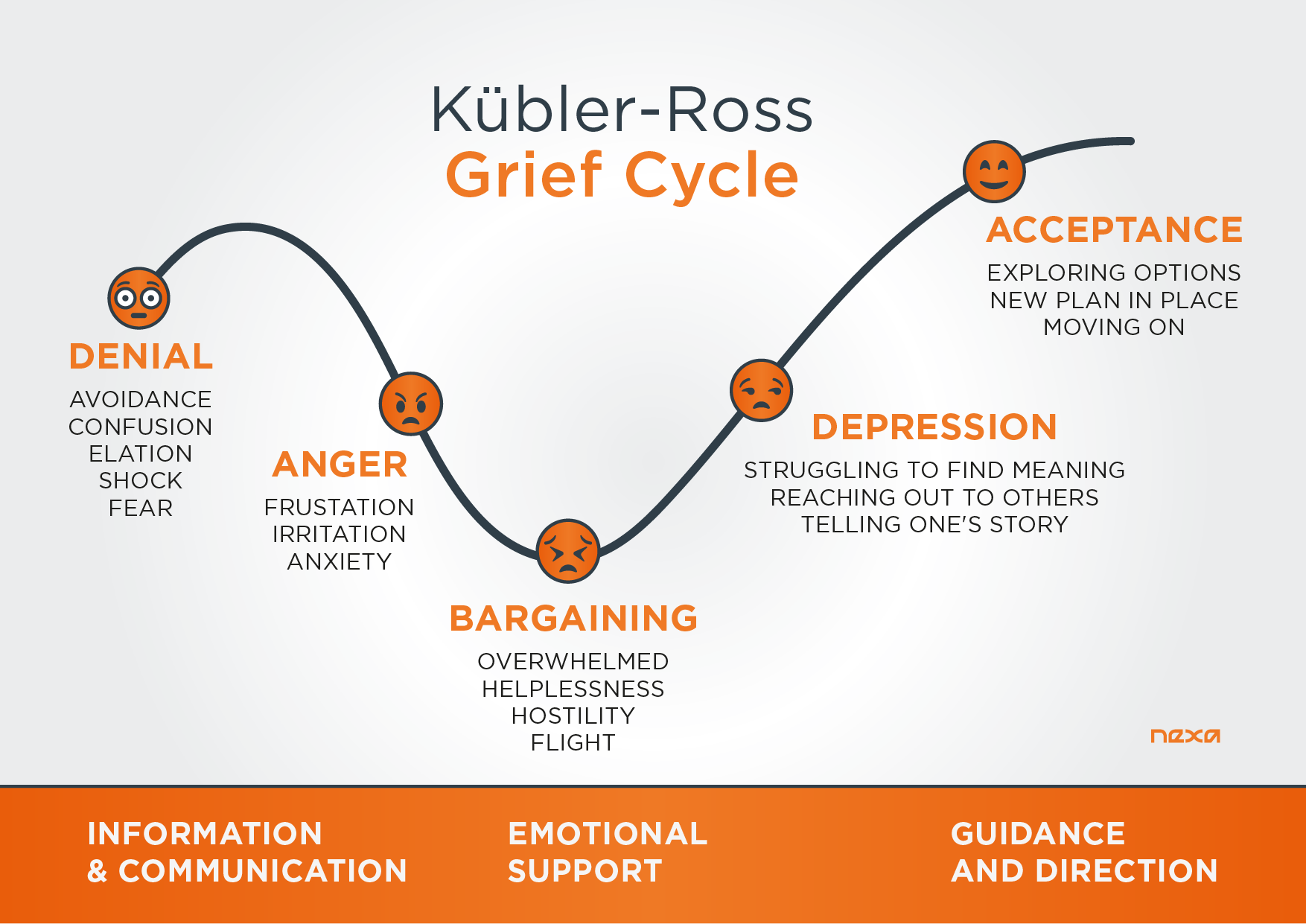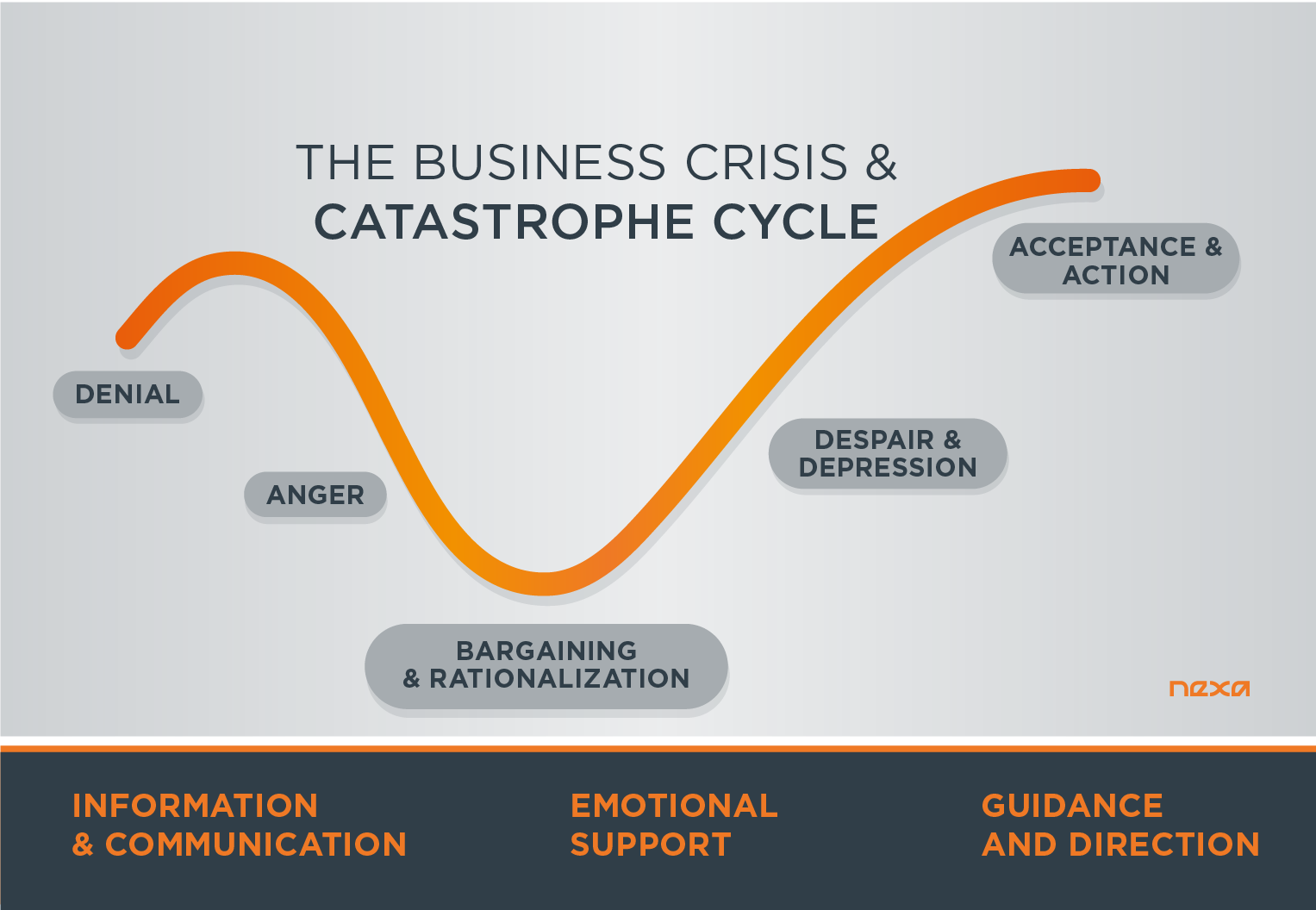Stocks are down 30%. Much of the world’s population is in lockdown. Fear and anxiety are rife and many entrepreneurs are battling to keep their businesses alive.
As businesspeople, we often pride ourselves on the ability to make decisions based on calm and rational analysis. Yet as humans, the primitive, emotional part of our brains (the amygdala) is on alert for threats and risks, and quickly takes over in a crisis. Couple this with our instinctive desire for certainty and the fact we are hardwired to see more negatives than positives, and it’s little wonder emotions are running high.
At times like this though, it's important to search for perspective and if possible, rational thinking. The reality is that once vaccines and antidotes are available to the wider public this, combined with national lockdowns and social distancing should stem the spread of the virus. While businesses may not immediately return to normal, revenue opportunities will certainly increase. The challenge is that between now and the point at which the virus is under control, business leaders and entrepreneurs will no doubt go through even more uncertainty coupled with emotional highs and lows and it's important to make sense of this and it often helps to use business and psychological models that provide a framework for precisely this purpose.
Enter the 5 Stages of Grief by Elisabeth Kübler-Ross
In her 1969 book, titled 'On Death and Dying', Elisabeth Kübler-Ross identified 5 stages of grief based on her research and experience with terminally-ill patients. These 5 stages are Denial, Anger, Depression, Bargaining and Acceptance and although this framework wasn't created for the corporate world, it covers many of the emotions and thought processes that entrepreneurs go through at times of uncertainty and crisis. For reference, here's the original Kübler-Ross Grief Cycle model:

The Kübler-Ross Change Curve is Trade Marked (TM) by the Elisabeth Kübler Ross Family Limited Partnership. It cannot be used for commercial purposes without prior written permission and licensing from the Elisabeth Kübler Ross Family Limited Partnership.
Clearly, there are sections of this that can be applied to the business world. For example Anger, Bargaining and Acceptance can all be easily related to moments in business where unexpected actions or unpredicted happenings require alternative strategies and thought. We're certain that Entrepreneurs can also relate to the up-down-up motion of model as well.
The challenge though with applying the Kübler-Ross grief cycle to business is that it doesn't exactly match the thoughts, emotions and actions of business leaders that a crisis would cause and so, to correct this, we created a slightly adapted version of the cycle:

As you can see from the original model, 'Bargaining' has been edited to 'Bargaining & Rationalization' with 'Depression' and 'Acceptance' updated to 'Despair & Depression' and 'Acceptance & Action' respectively.
Let's looks at each of these stages in more detail but within the context of business and the COVID-19 crisis:
Denial
It's fair to say that when news of the Coronavirus outbreak first hit, the reaction outside of the Far East was very much linked to disbelief. We understood that the virus was making people sick in China with some fatalities but we were also told that COVID-19 was a form of the flu-virus and only threatened the lives of the elderly or those with pre-existing medical conditions. Most businesses, governments and world leaders ignored the possibility of a wider-scale outbreak and simply weren't prepared for a global pandemic. We didn't take this seriously because many of us had feelings such as:
- "This won't impact us"
- "This is a problem for China"
- "Flu kills people every year, there's not much difference between flu and the coronavirus"
As a consequence of this, the large majority continued with business as normal without taking any precautions.
Anger
The next stage of the cycle is 'Anger' and can follow denial once the impact of the crisis starts to impact our lives. Anger is often directed at others, but can also be directed back at the person feeling this emotion. With the COVID-19 crisis, the following signs or feelings of anger can appear:
- "How did we not see this coming?"
- "Why isn't the government doing more to help people like me?"
- "This is going to hurt my business"
- "How did I not see this coming?"
Angry people can make bad decisions and so it's not advisable to make sweeping changes to your business if you are experiencing the emotions prevalent to this stage.
Bargaining & Rationalization
At this stage, business leaders and entrepreneurs seek to make sense of what’s happening. They might want to talk about the impact it’s having on them and their businesses, and reach out to their networks to share their stories. While bargaining and rationalizing, leaders might seek ways to rationalise how they can avoid changing too much. For example, rather than asking people not to come into work, they might look to implement less stringent social distancing measures.
The Bargaining and Rationalization stage often includes a desire for things to be different, but often things which are outside of our control.
Despair & Depression
In situations where leaders have limited control and it feels everything is going against them, they may find themselves in a state of despair and perhaps depression. Feelings of overwhelm, helplessness and hopelessness can take over. Not knowing where to start or how to tackle the problems can lead them to withdraw; they may give up the fight, fill their time with distractions and hope the problems will go away. Many business owners may ask themselves if continuing business and fighting for survival is actually worth the effort spent.
Questions such as 'should we bother, what's the point?' as well as more practical questions such as 'how will we make supplier payments?' or 'how will we pay salaries?' may become common when leaders experience this stage.
Acceptance & Action
The key stage within our Business Crisis and Catastrophe Cycle is the Acceptance and Action stage. This is the point at which entrepreneurs take control of the situation and move towards solutions rather than focusing solely on the problems.
Acceptance does not necessarily mean being pleased with the situation. It is more about letting go of the elements outside of your control (e.g. the virus, the government response, the restrictions), and focusing on the things which you can influence or control. Once that focus is in place, business owners can move to making rational decisions and taking the actions that will help them survive and ultimately prepare for the upturn when it arrives.
Accelerating the shift to Acceptance and Action:
The key to calming the emotional brain and moving to a more controlled response is to engage the rational, logical part of the brain (the frontal lobes). Gathering and analysing information helps clarify the reality of the situation and enables more rational decisions to be made. Creating up-to-date cashflow forecasts are a vital way of understanding where your business is at, where it’s likely to be, and where there are opportunities to save cost or what additional support you might need. Now is also a great time to be analysing other elements of your business. Which clients are the most valuable, which products or services make you the best margins, what is and isn’t working with your marketing (based on real data, not gut feel).
Undertaking analysis may not be the most fun job for business owners, but understanding the reality will reduce anxiety, give a sense of control, and enable you to make rational, data-based decisions. It will also equip you with the clarity and confidence to focus your teams on the actions and possibilities that will help you survive COVID-19 and thrive as the market picks up.
The table below summarizes the 5 stages of the Business Crisis and Catastrophe Cycle and its relation to COVID-19:
.png?width=1242&name=The%20Business%20Crisis%20%26%20Catastrophe%20Cycle-COVID-19%20(2).png)
Conclusion:
In these turbulent times, it’s perfectly natural for business owners to feel like they are on an emotional rollercoaster ride. But nothing beats anxiety like action. If you find yourself stressed about your business, anxious about the future, or just feeling overwhelmed at the enormity of the situation, don’t beat yourself up. Take a few deep breaths (literally), and focus though on what you can do, what you can influence and engage the rational part of the brain.
Now is not the time to panic - it is the time to plan, because a plan creates clarity, and clarity creates calm. And the entrepreneurs who respond calmly and rationally to this crisis are the ones who will survive the crisis and have the pick of the opportunities when the market bounces back.
The Authors
 Amit Vyas is the CEO at Nexa, a Growth Agency with offices in Dubai, New York and Manchester. Amit Co-founded the business in 2005 and has worked and strategized with leading global businesses helping them to digitally transform their sales, CRM and marketing operations. Amit's a keen golfer, avid football fan and passionate entrepreneur.
Amit Vyas is the CEO at Nexa, a Growth Agency with offices in Dubai, New York and Manchester. Amit Co-founded the business in 2005 and has worked and strategized with leading global businesses helping them to digitally transform their sales, CRM and marketing operations. Amit's a keen golfer, avid football fan and passionate entrepreneur.
 Mark Williams is a leading business coach based in Norwich, UK. He has been a trusted advisor to many of the world’s leading businesses for over 20 years, helping to grow their profits and their performance through their people. Mark’s passions are travel, football and unlocking the potential of people and their businesses.
Mark Williams is a leading business coach based in Norwich, UK. He has been a trusted advisor to many of the world’s leading businesses for over 20 years, helping to grow their profits and their performance through their people. Mark’s passions are travel, football and unlocking the potential of people and their businesses.
About Nexa
At Nexa, we pride ourselves on being forward thinking, rational and objective, while understanding our responsibility when it comes to the needs of our employees and clients. This article is therefore different to the type of content we normally produce but having spoken to friends, clients and colleagues - all of whom can relate to the feelings and emotions highlighted above, we sincerely hope that others find this as useful as we have and can fast-track their emotions to their most rational and productive state of mind.
We'd also love your feedback. Please feel free to contact Amit Vyas, Nexa's CEO via email.
References:
%20(1).png?width=2701&height=607&name=BRC_NEXA_LOGO_WHITE%20(2)%20(1).png)
